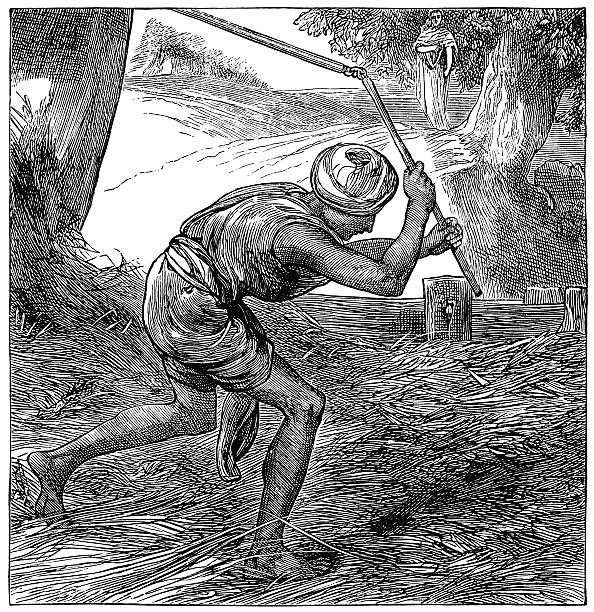And the Messenger of Hashem came and sat beneath the elm tree in Ofra that belonged to Yoash, the Avi-Ezrite – and Gideon his son was threshing wheat at the wine press, to hide it from Midian. And the messenger of Hashem appeared to him, and he said to him, “G' is with you, mighty man of valor!”(Shoftim 6:11-12)
Rabbi David Kimchi quotes the following midrash: “He [the messenger] waited there until he found some merit for him, then he appeared to him. They say: Yoash, his father, was threshing wheat. Gideon said to him, “My father, you are old, go into the house and I will do the threshing – because if the Midianites come, you do not have the strength to escape.” The messenger said [to himself], you have fulfilled the commandment of honoring [one’s father] and you are fit to have my children be redeemed through your hand. Immediately, “the Messenger of H appeared to him…”
This midrash is difficult to understand. Though Gideon’s actions are certainly laudable they are by no means extraordinary and certainly do not make him a worthy instrument of G’s redemption. The midrash seems to be picking up on a nuance of the text. Why is the text so focused on Yoash's elm tree? Why is Gideon presented as the son of the man who owns the elm tree?
Consider another text from Sefer Shemot (3:1-2): “And Moshe was shepherding the sheep of Yitro, his father-in-law, the priest of Midian, and he guided the sheep to the end of the wilderness, and he came to the Mountain of Elokim, toward Horev. And the Messenger of Hashem appeared to him in the flame of fire from the midst of the bush…” Why is the text concerned with what Moshe was doing when his prophecy began?
Let us compare the two stories. Both Moshe and Gideon were doing work, not for their own household but for the household of their father (or father-in-law) – both were fulfilling the commandment of honoring one's father (or father-in-law) – when the Messenger of Hashem appeared to them. What does this teach us about these two men? Their disregard of their own household to secure the success of the greater household – that of their father (or father-in-law) – points to a great virtue. They were both demonstrating the core trait of the liberator - each disregarded the good of his own household for the sake of a larger more important household. They both put behind personal ambitions for the sake of the greater good. The liberator of Israel must abandon his personal aspirations for the sake of the entire House of Israel.
Now the meaning of the midrash is clear. Gideon's great merit is "honoring is father" - the great virtue of being able to set aside personal ambition for the sake of the greater good.

Comments